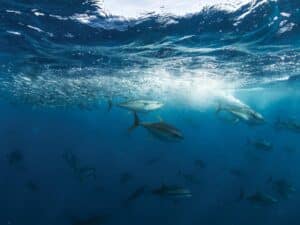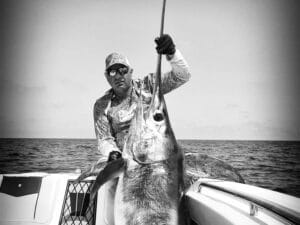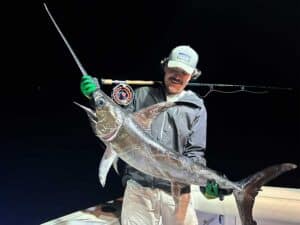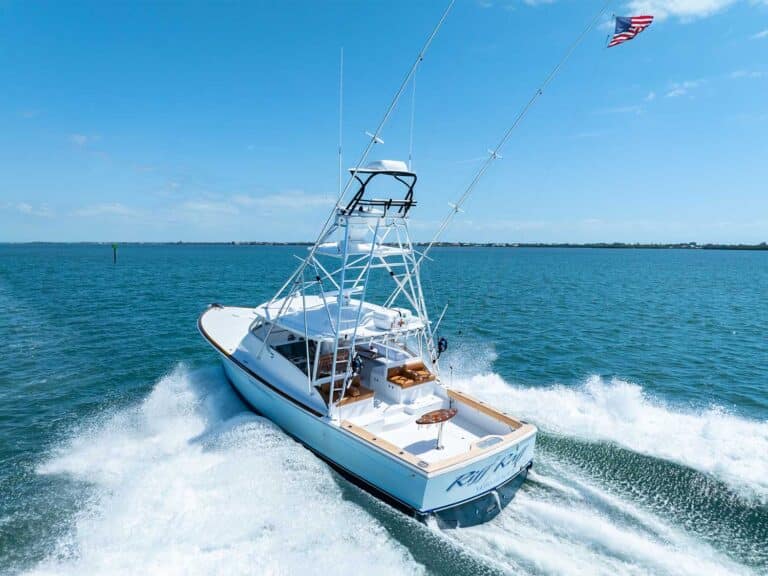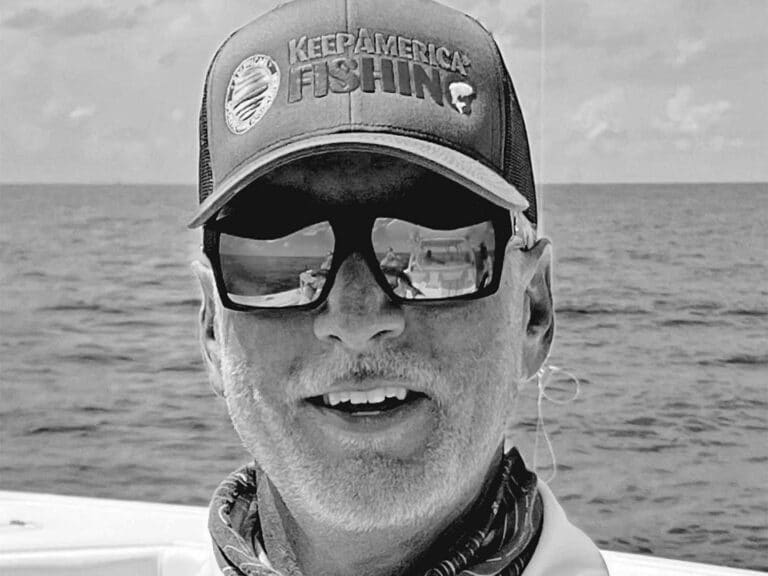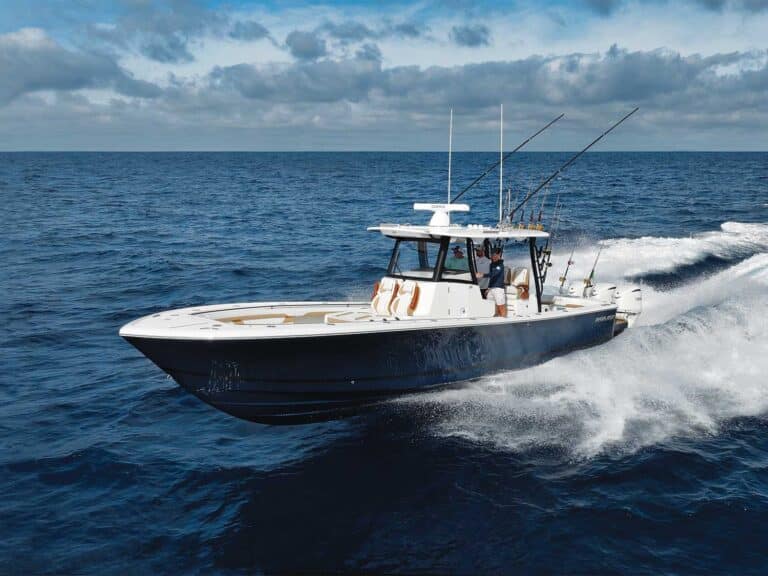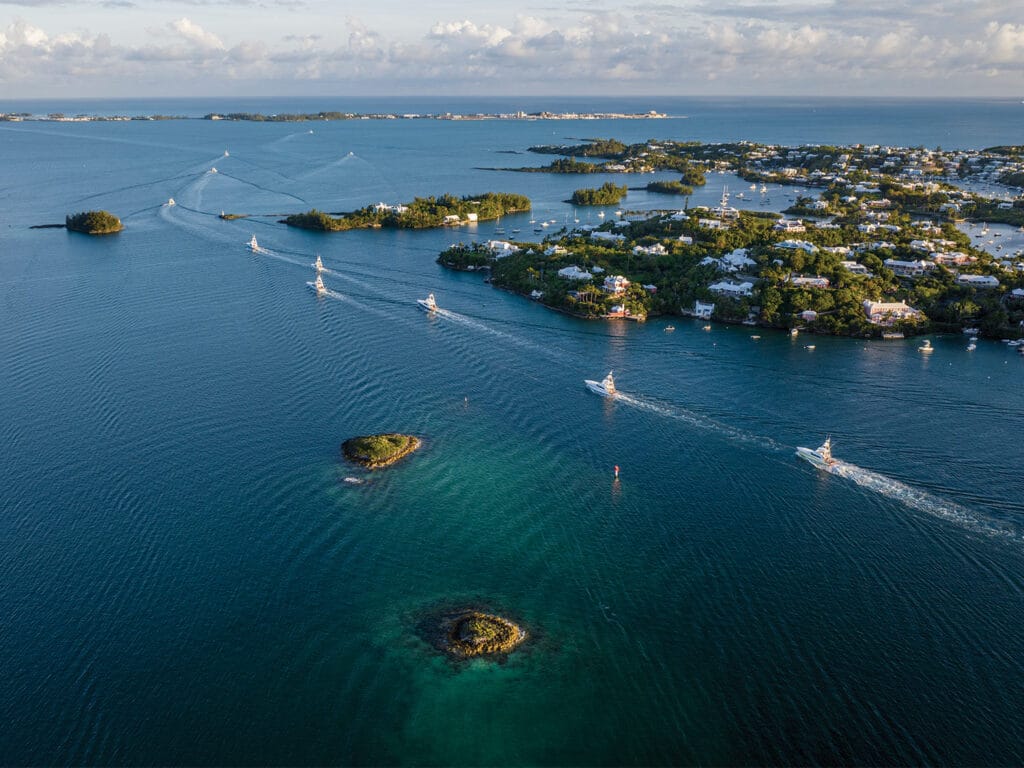
Special delivery: Sign up for the free Marlin email newsletter. Subscribe to Marlin magazine and get a year of highly collectible, keepsake editions – plus access to the digital edition and archives.
This year, the Bermuda Triple Crown will celebrate 20 years of tournament fishing, along with every bit of the pulse-pounding adrenaline, passion, camaraderie and sheer enjoyment that comes with such a milestone. Along the way, there have been 1,000-plus-pound blue marlin weighed and lost, and millions of dollars in prize money awarded to the participants. The Triple Crown attracts the undisputed top names in the sport every year, the vast majority of whom spend the month of July chasing giant blues in the depths of these cerulean blue waters.
The grand dame of the three-tournament series—the Sea Horse Anglers Club Billfish Tournament—was founded in 1973. Once a small gathering for passionate Bermudian blue marlin fishermen, it became the cornerstone of the Triple Crown after the introduction of the Bermuda Big Game Classic in 2001, and finally the Bermuda Billfish Blast in 2005, the annual Fourth of July event that rounded out the Triple Crown lineup. It was that same year when a fire at the local power plant turned out the lights—along with everything else—across the island for the first day of the Bermuda Big Game Classic. It didn’t matter for Bob Gollahon and his Southern Exposure team, though, as they landed the first and only grander blue marlin of the series at 1,023 pounds to win not only the Classic but the inaugural Bermuda Triple Crown. What a way to start.
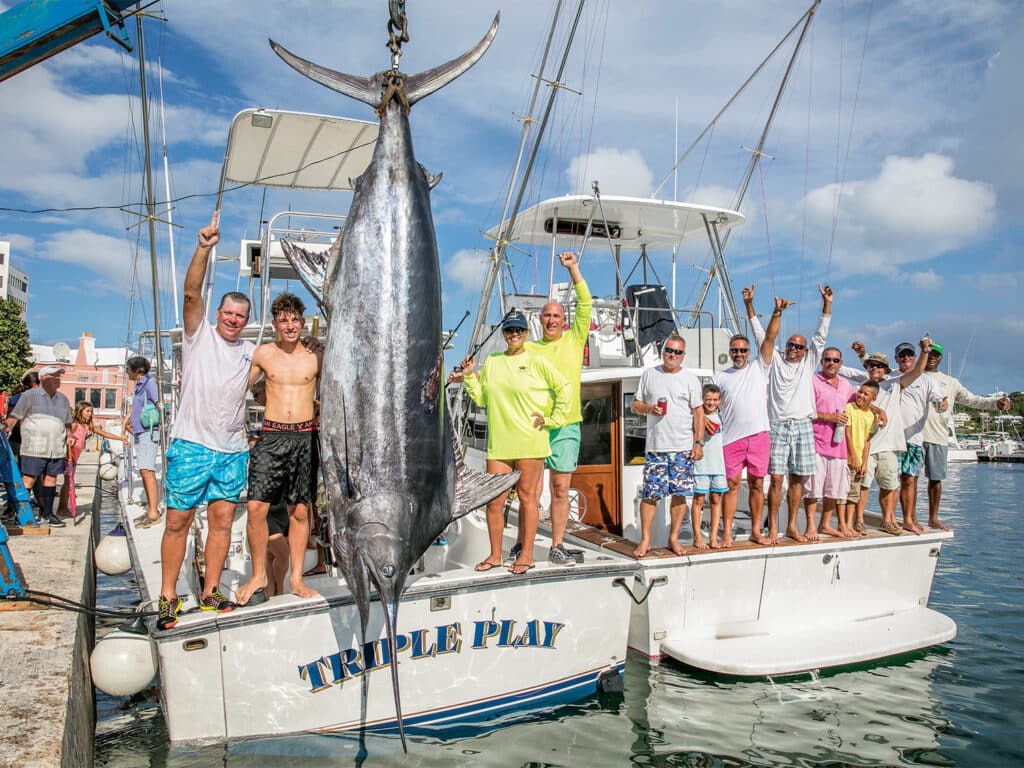
The Early Years
The Bermuda series has attracted the top names in the sport since its inception. Case in point: the 2002 Bermuda Big Game Classic. The 64-foot Jim Smith known as Se7en with Capt. Billy Borer at the helm boated one blue and released two more during the tournament—John Vance from Jim Smith and Jim Lambert of Reel Tight fame both released one, and Se7en owner and angler Stan Walker landed the largest fish of the tournament at 621 pounds. Lambert returned a few seasons later and won the Classic on Reel Tight with Capt. Eddie Hebert and mates Eric Leech, Joe Feigel and Fly Navarro, releasing four blues.
Bermuda-based Capt. Allan DeSilva on DeMako has plenty of great memories about the Bermuda Triple Crown, but what still amazes him, he says, is the number of American sport-fishing boats that make the run to Bermuda every year to fish it. “I made my first crossing as a boy of 15 with my father, Henry. Going over from Bermuda to the States wasn’t so bad because we had a big target to hit. Coming back in a small boat with only a compass, a radio-direction finder and dead reckoning to help us find a small island in the middle of the open ocean was more challenging. I about wore the RDF antenna out the third day as I was trying to tune the radio to ZBM-AM to find our way home.” This was obviously well before the days of GPS and even predating loran-C navigation. How things have changed over the years.
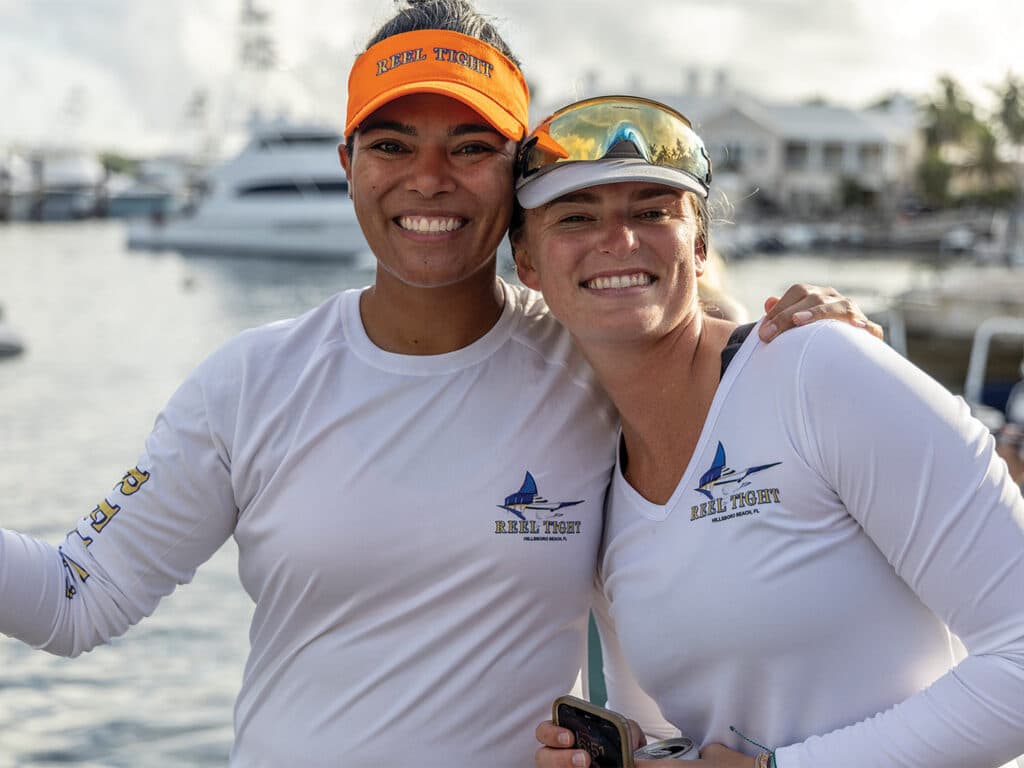
As the boats became larger, the Triple Crown fleet shifted toward those more capable of easily making the 600-or-so-nautical-mile crossing to Bermuda from North Carolina, while others would venture north from the islands of the Bahamas, some departing at the conclusion of the now-defunct Bahamas Billfish Championship. In 2012, Frank Rodriguez and the Fa-La-Me team, then fishing from a 92-foot Viking, headed to Bermuda with a BBC series victory already in hand. They won again in the Triple Crown, eventually being named the top team of the series an unprecedented three times.
A Near Disaster Averted
And while the island is incredibly beautiful and its local residents as hospitable and welcoming as any other destination on the planet, the real draws here are the blue marlin—big ones. According to GranderWatch.com, there have been 19 verified blues weighing more than 1,000 pounds landed in Bermudian waters, and scores of others either lost or released to fight again. The father-and-son team of Capts. Alan and Ian Card have the lion’s share of those fish, with six caught from their 40-foot Gamefisherman, Challenger, over the years. During the Sea Horse Anglers Club tournament in 2006, Ian was actually impaled in the chest by a blue marlin as it leaped across the cockpit, pulling him overboard in the process. Fishing nearby aboard his Anita Jean, Dr. Peter Watson heard the radio calls and immediately pulled in the spread to follow Challenger back to the dock to offer medical assistance. The incident drew international media attention; fortunately Card made a full recovery, with a heck of a scar, along with an incredible story to tell his grandkids one day.
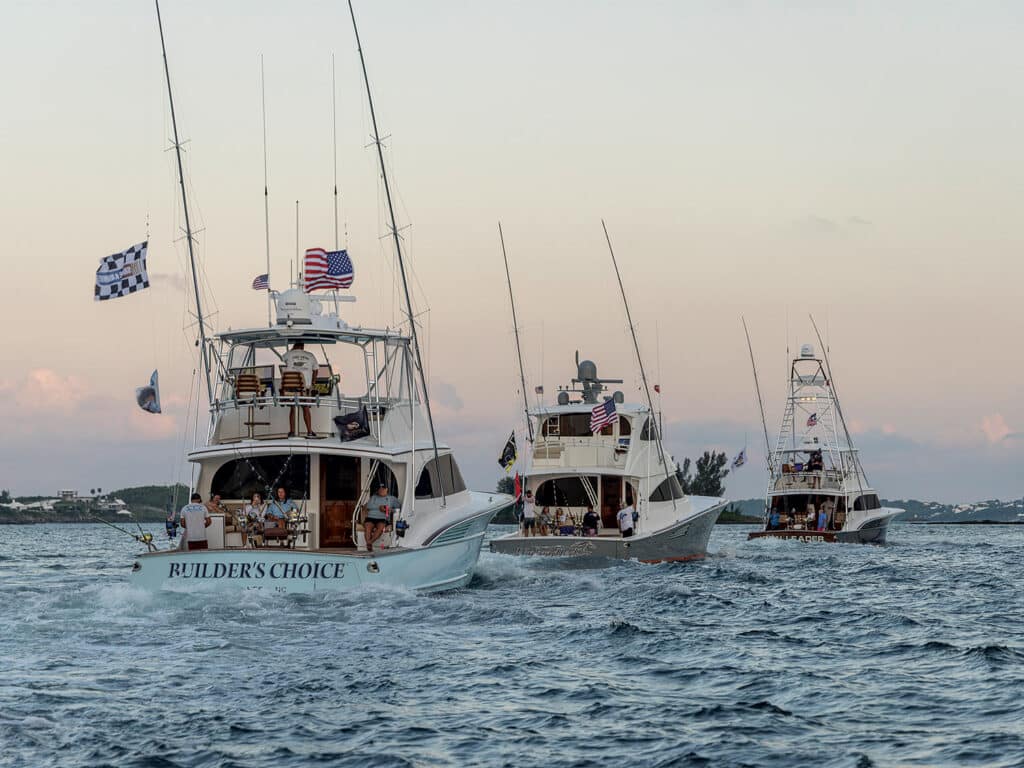
Cheering for the underdog is a recurring theme in traditional sports, especially the amateur ranks. Competitive big-game tournament fishing has its share of underdogs too, and for the last 15 years in Bermuda, the Triple Play team has fit the profile. Often fishing from the smallest boat in the fleet and against some of the most high-profile teams in the sport, this local team has more than held its own over the years. With Andrew Dias at the helm of his 34-foot Off Soundings express and Martin Estis in the chair, the Triple Play team caught the largest fish in the 2003 Sea Horse Anglers Club Billfish Tournament with a 731-pound blue. They would go on to win the inaugural Bermuda Billfish Blast in 2005 and were the only team to catch the largest fish in the Big Game Classic twice, with an 856-pounder in 2013 and a 934-pound beast in 2016. In the history of the Bermuda tournament series, Triple Play has weighed plenty of qualifiers, including several daily winners. There is a certain advantage that comes with local knowledge.
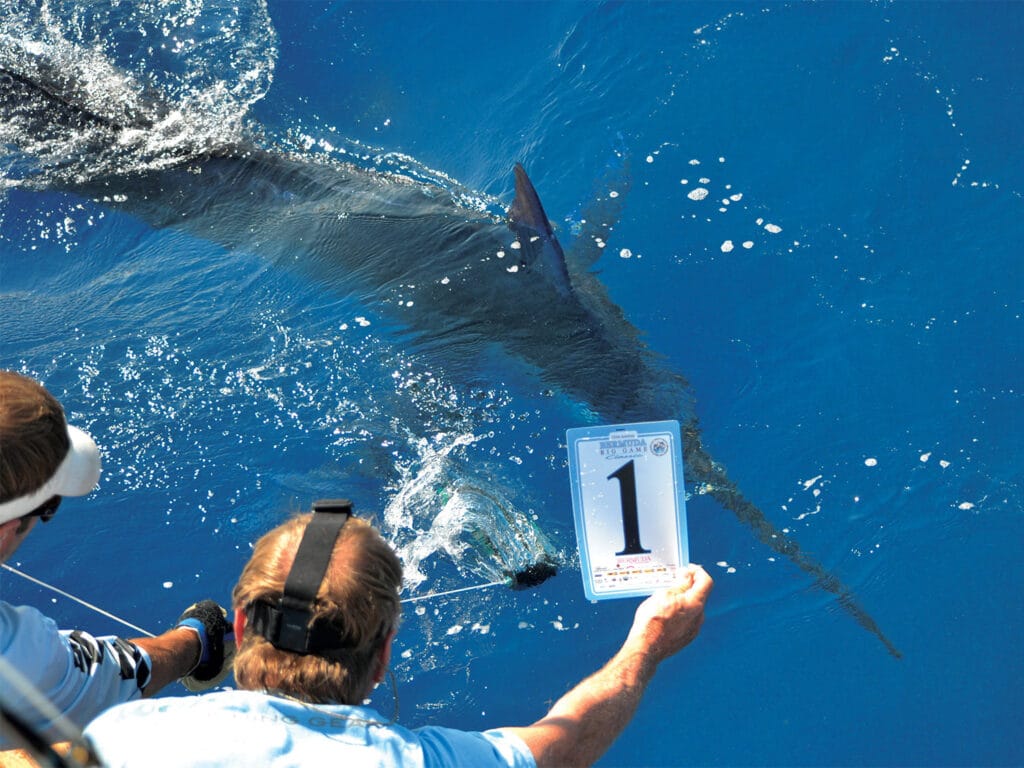
“We’re grass-hut natives, born and raised on the island,” Dias says with a laugh. “We’ve been fishing for as long as we could hold a rod and line. Before we started in tournaments, we were commercial fishermen. We’d fish for tuna, swordfish, yellowtails, wahoo, whatever was in season before we settled into our current careers. Our shift to the competitive circuit took off after I bought my boat in the late 1990s.
“We started off fishing just the two tournaments at first,” Dias added. “After seeing a couple big marlin, you get hooked yourself, and we never looked back. Typically, we go all in on the different entry levels.” In 2016, that dedication and persistence paid off when they landed the largest fish of the Bermuda Big Game Classic for junior angler (and Martin’s son) Jacob Estis. That one just missed grander status at 934 pounds. They embody the Bermudian spirit of hospitality as well. “I truly believe we have some of the best anglers in the world right here, bar none,” Dias says. “But we all fish for the love and passion of the sport. We do like to win, but it’s not just about winning. It’s got to be fun. If you’re not having fun out there, you need to turn up the music and mix another drink.”
The Modern Era
With the vast majority of the fleet visiting Bermuda from the US mainland, making the journey across the Atlantic isn’t something to be taken lightly. Hiring a reputable weather-routing and forecasting service should be a serious consideration when planning a trip of this caliber, not only to determine your best window for departure but also to keep you abreast of weather changes during your crossing to and from the United States. Weather services not only provide accurate forecasts but also offer you timely updates, which highlight potential risks and keep you making confident decisions. Fuel is another question mark.

Today’s boats are much more capable of transiting long distances, thanks to greatly improved fuel capacity; fuel bladders on deck can extend that range even farther and can cut many hours of mindless chugging by allowing a team to steam in at normal cruising speed. Once you’ve arrived, head directly to St. George’s on the north end for customs, immigration, health clearance and a fishing permit from H.M. Customs and Department of Border Control. Checking in is relatively quick and painless in Bermuda. After clearing, most visiting sportboats will head to Hamilton, where the major transient marinas are located. The marina at the Hamilton Princess is a recently renovated state-of-the-art 60-slip facility that can accommodate vessels from 30 to 500 feet and is always a favorite of visiting sportboats.
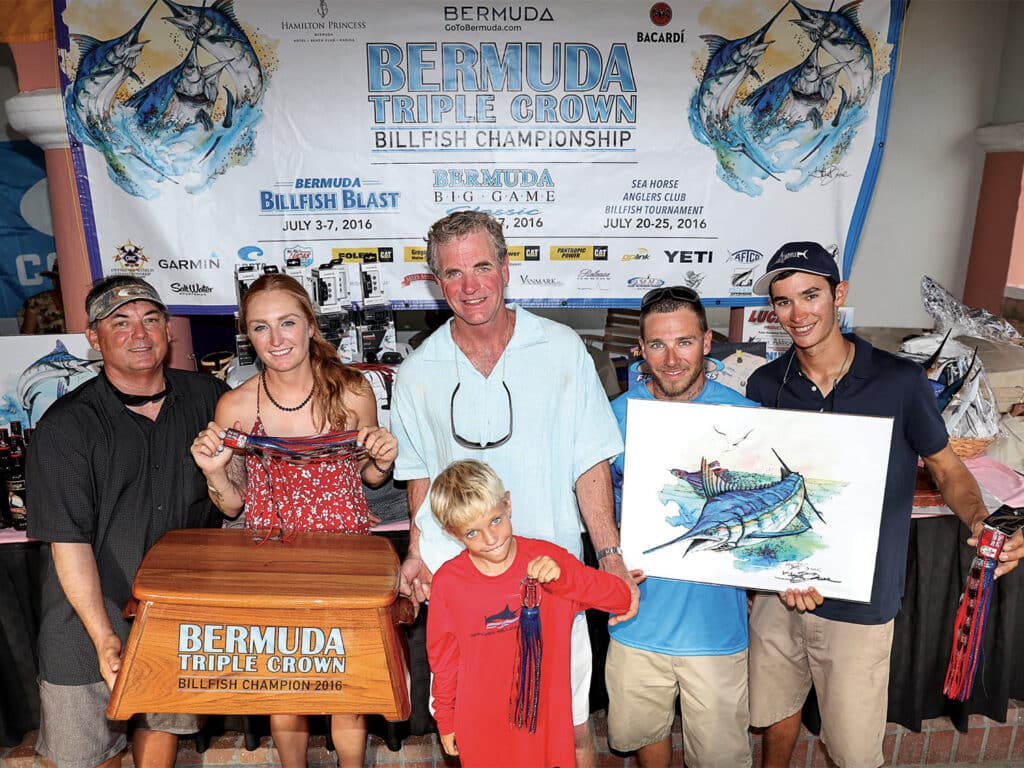
For those who prefer to stay on land rather than aboard the boat, the Rosewood Bermuda at Tucker’s Point is a great place to start. It’s a British-colonial-styled sanctuary where opulence is the norm, with palm-lined pools, a golf course designed by Robert Rulewich and a lavish spa, to name just a few of the amenities. The historic Rosedon Hotel brings country-estate living and old-world charm together for a boutique stay just minutes from Front Street. Completed in 1906, the property was built as the private home of E.J. Thompson and is named after his son, Robert Rosedon Thompson. There are nine world-class golf courses, and the diving and snorkeling are phenomenal. The living reefs surrounding the islands and the quantity of shipwrecks make underwater exploration prospects almost limitless. You also can take an underground crystal-cave tour and explore the historic and well-preserved Fort St. Catherine, where Bermuda’s original settlers came ashore in the early 1600s after hitting one of the reefs. Take a sunset sailing tour, or go rock climbing and cliff jumping directly into the lagoon-like waters of Clarence Cove at Admiralty House Park near Spanish Point.
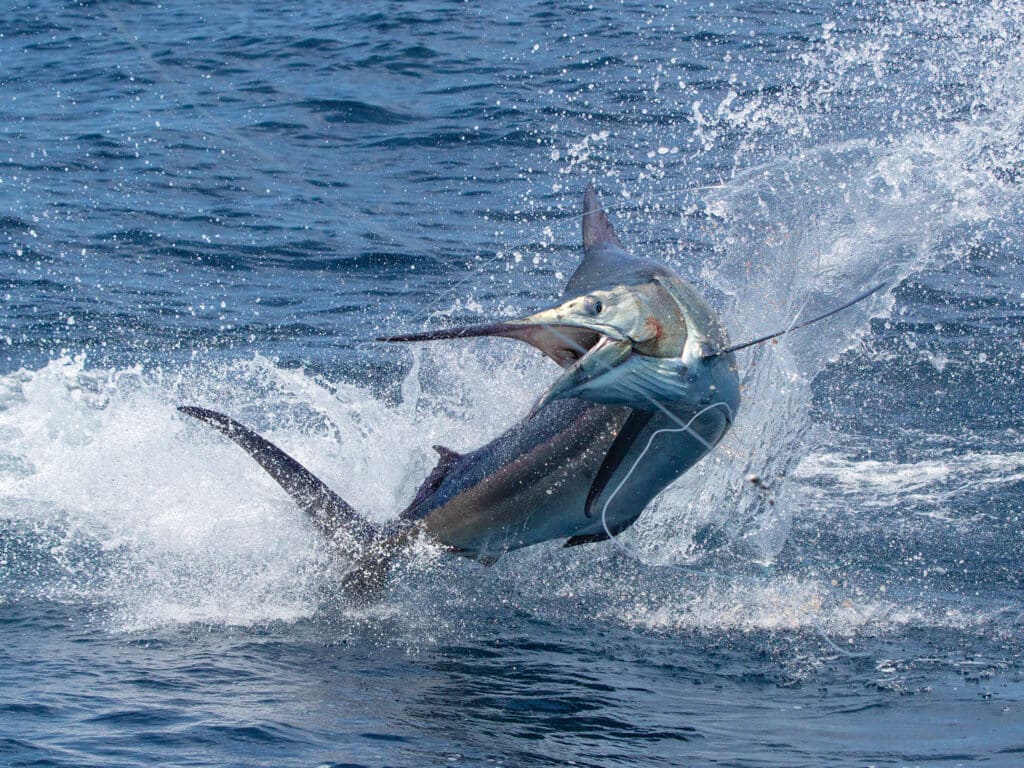
As we move into the modern era, the Bermuda Triple Crown now offers more ways to win through multiple optional jackpots for both big fish and release points—the series itself has often been won by those releasing blue marlin rather than weighing the largest. The dockside events and parties have become even more fun, thanks to the introduction of new sponsors and supporters, while participation by the local and visiting fleet is as high as ever. It’s the same stratospheric level of passion and camaraderie that first attracted blue marlin aficionados more than two decades ago that continues to shine today.
Gosling’s Rum Swizzle
This is arguably the national drink of Bermuda and is enjoyed in bars across the island nation. It has also become a staple on tiki bar menus across the world.

Ingredients (Makes 6)
- 4 oz. Gosling’s Black Seal rum
- 4 oz. Gosling’s Gold rum
- 5 oz. pineapple juice
- 5 oz. orange juice
- ¾ oz. grenadine or 2 oz. Bermuda Falernum
- 6 dashes Angostura bitters
Into a pitcher one-third full of crushed ice, add Gosling’s Black Seal rum, Gosling’s Gold rum, pineapple juice, orange juice, grenadine or Bermuda Falernum, and Angostura bitters. Churn vigorously until a froth appears, or mix in a cocktail shaker. Strain into a highball glass and garnish with an orange slice.
